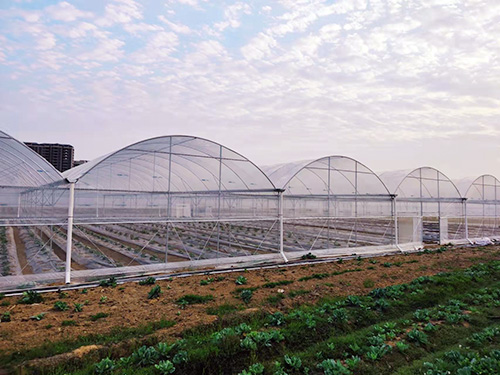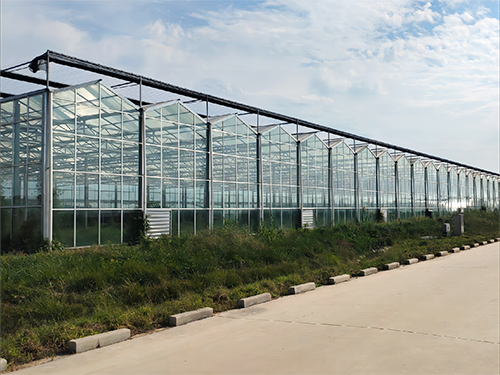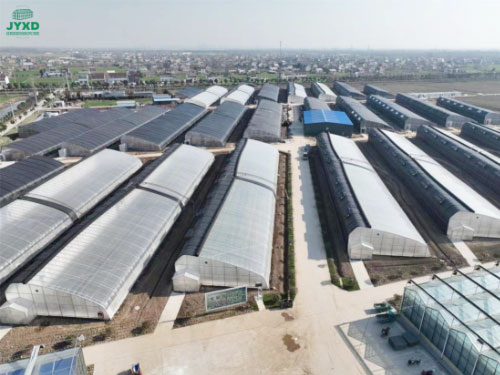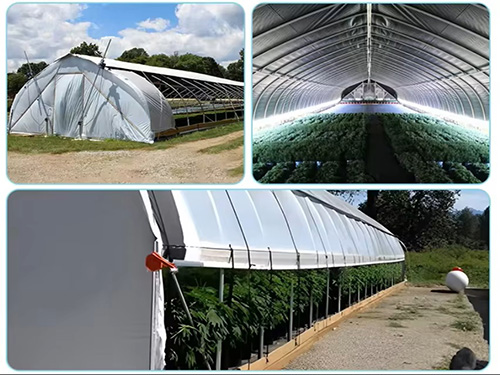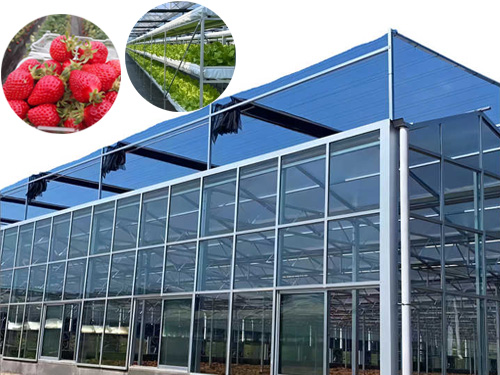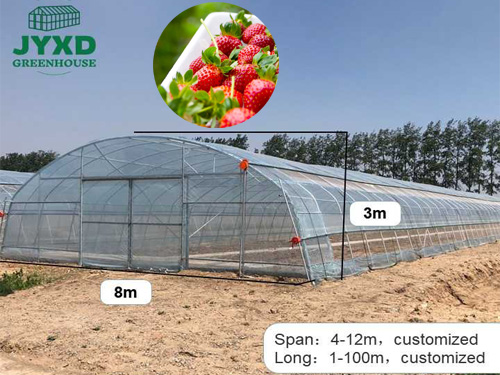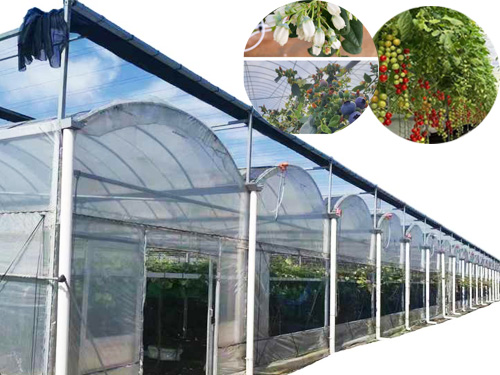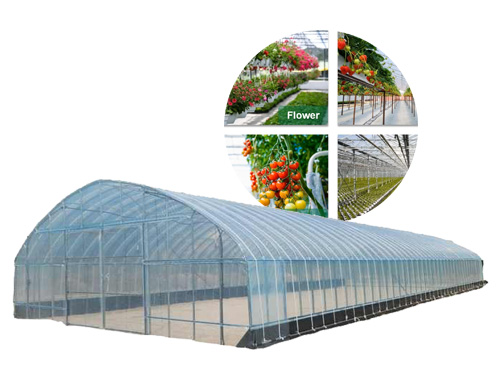NEWS DETAILS
NEWS INFORMATION
Efficient Greenhouse Irrigation Systems: Achieving Water Conservation and Optimizing Irrigation
AUTHOR:jyxd-greenhouse DATE:2024-11-18 17:26:20 HITS:109
In modern agriculture, greenhouse farming has become an efficient method of production, with greenhouse irrigation systems being one of the core technologies. To conserve water resources and increase crop yields, an efficient greenhouse irrigation system not only provides precise irrigation but also reduces water waste, making it an essential tool for the development of modern greenhouse agriculture. This article will discuss how an efficient greenhouse irrigation system can achieve water conservation and optimize irrigation.
1. Definition and Advantages of Greenhouse Irrigation Systems
A greenhouse irrigation system is a specialized irrigation system designed for greenhouse environments, which controls the water volume, frequency, and timing to achieve precise irrigation. The key advantage lies in its ability to maintain stable humidity levels inside the greenhouse, meeting the water needs of crops at different growth stages, thus optimizing irrigation. Compared to traditional irrigation methods, greenhouse irrigation systems reduce water waste and improve water use efficiency, making them a key element in modern greenhouse management.
Keywords: greenhouse irrigation system
2. Water Conservation Principles of Greenhouse Irrigation Systems
The water conservation principles of greenhouse irrigation systems are mainly reflected in the following aspects:
Precise Irrigation: Greenhouse irrigation systems use sensors to monitor soil moisture and temperature in real time, providing precise water supply based on the crop's water requirements, avoiding over-irrigation and water waste.
Automated Control: Modern greenhouse irrigation systems can be integrated with smart control systems, which automatically control irrigation time, frequency, and water volume, ensuring that crops receive the necessary moisture at the optimal time.
Water Recycling Systems: Some efficient greenhouse irrigation systems are equipped with water recycling devices that can collect and filter water that is not absorbed by the plants, enabling the secondary use of water resources.
3. Types of Efficient Greenhouse Irrigation Systems
In practice, there are several types of greenhouse irrigation systems to choose from. Common types include:
Drip Irrigation System: Drip irrigation systems deliver water slowly and evenly to the root zone of plants through small pipes, making it the most common water-saving solution in greenhouse irrigation.
Micro-sprinkler System: The micro-sprinkler system uses spray heads to evenly distribute water around the plants, suitable for large greenhouses and crops with higher water needs.
Subsurface Drip Irrigation System: This system delivers water directly to the soil through infiltration pipes, preventing water evaporation, making it ideal for greenhouse farming in arid regions.
Keywords: greenhouse irrigation system, drip irrigation system, micro-sprinkler system
4. Steps for Implementing Efficient Greenhouse Irrigation Systems
To ensure the efficient operation of a greenhouse irrigation system, the following are the main implementation steps:
1. Needs Analysis: Choose the appropriate irrigation system type based on the greenhouse size, crop type, and water availability.
2. System Design: Properly layout irrigation pipelines and equipment to ensure even water flow and prevent water wastage.
3. Installation and Testing: Ensure that all pipes and sprinklers are functioning properly, and set appropriate irrigation times and frequencies.
4. Smart Monitoring: Use sensors and control systems to monitor soil moisture, temperature, and crop growth, adjusting the irrigation strategy as needed.
5. Maintenance Management: Regularly check for pipe leaks, clean filters, and ensure the long-term efficient operation of the system.
5. How Greenhouse Irrigation Systems Improve Yields
An efficient greenhouse irrigation system not only conserves water but also boosts crop yields because:
Improved Water Use Efficiency: The irrigation system ensures that crops receive adequate and consistent moisture, preventing growth stagnation caused by either water shortage or excess.
Reduced Disease Risk: Over-irrigation can lead to excessive humidity in the greenhouse, fostering the growth of pathogens, while precise irrigation helps control disease occurrence.
Promotes Uniform Growth: Efficient irrigation systems ensure that crops receive water evenly, leading to stable growth and high-quality yields.
6. Future Development of Efficient Greenhouse Irrigation Systems
With technological advancements, future greenhouse irrigation systems will become even more intelligent. For example, the integration of the Internet of Things (IoT) and artificial intelligence (AI) technologies can allow for real-time monitoring of environmental changes and automatic adjustment of irrigation plans. In addition, more water-saving technologies, such as rainwater harvesting and wastewater treatment systems, will be applied in greenhouse agriculture, providing sustainable water resources for farming.
Conclusion
Efficient greenhouse irrigation systems are key to achieving water conservation and optimizing irrigation. Through precise irrigation, automated control, and water resource recycling, greenhouse irrigation systems not only enhance water use efficiency but also promote healthy crop growth. For farmers aiming for green agriculture and sustainable development, adopting advanced greenhouse irrigation systems is a wise choice.
Hebei Juyou Xinda Greenhouse Facilities Co.,Ltd.
Copyright © 2024-2025 https://www.jyxd-greenhouse.com. All Rights Reserved Hebei Juyou Xinda Greenhouse Facilities Co.,Ltd.Copyright




 Current Location:
Current Location: